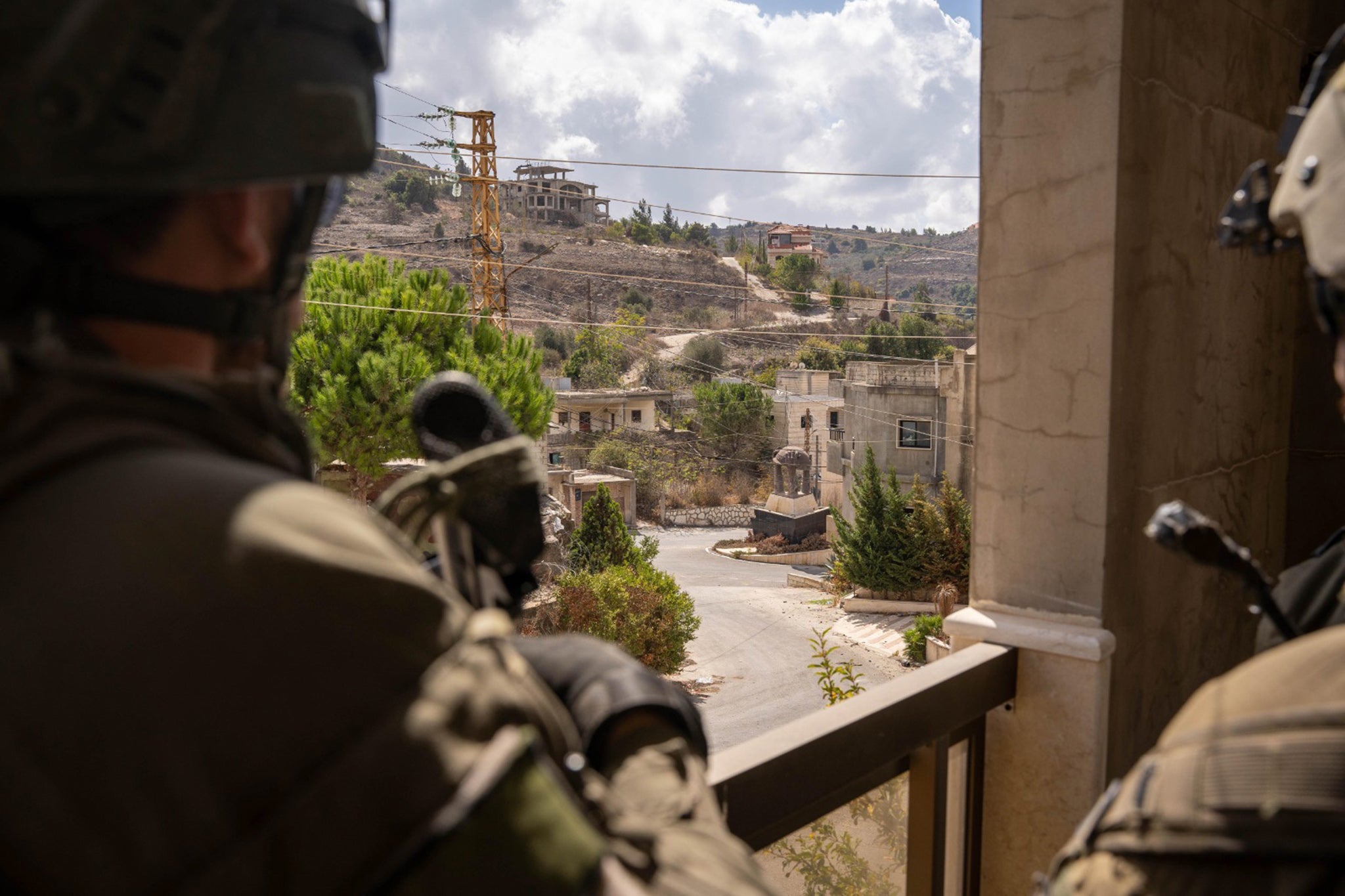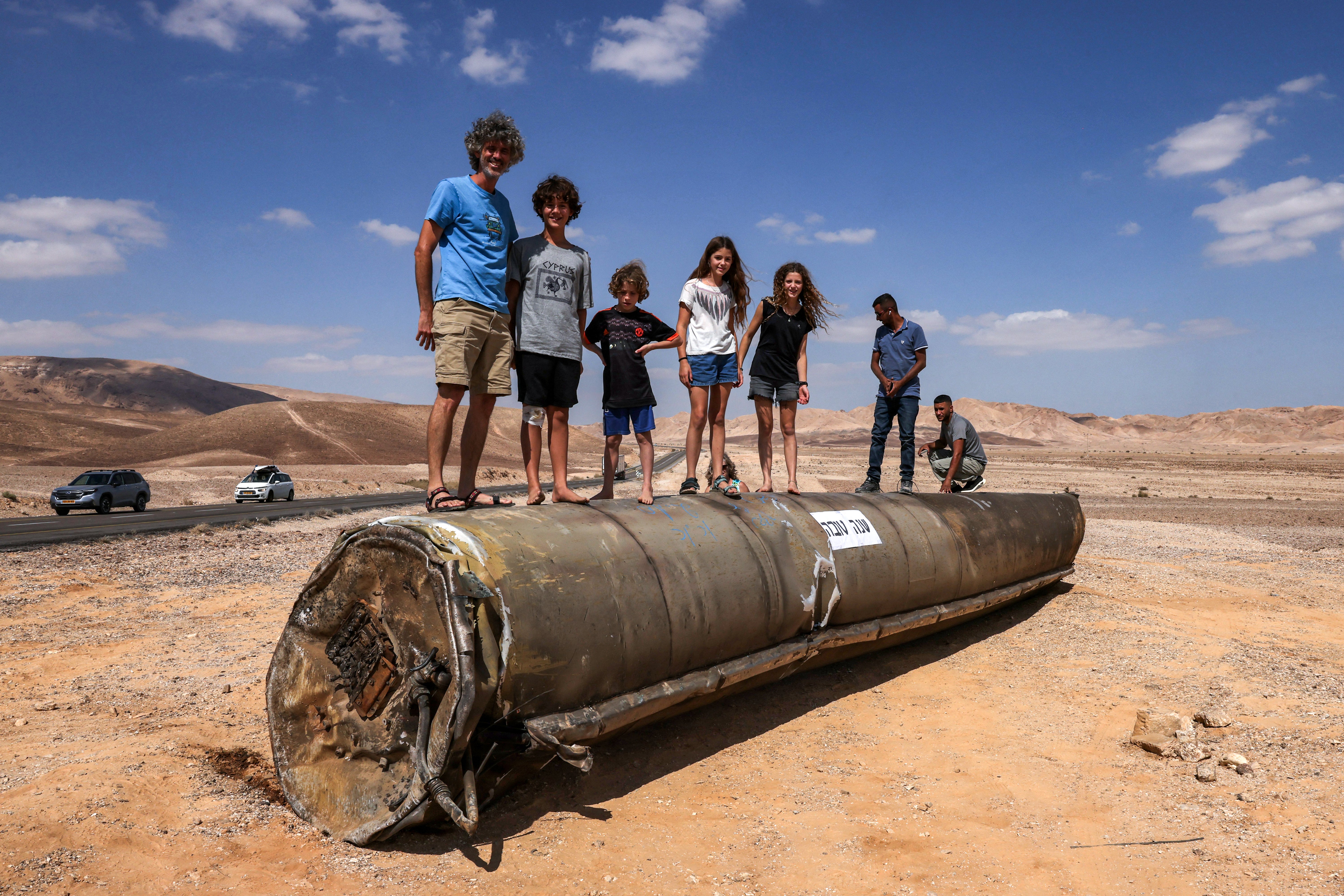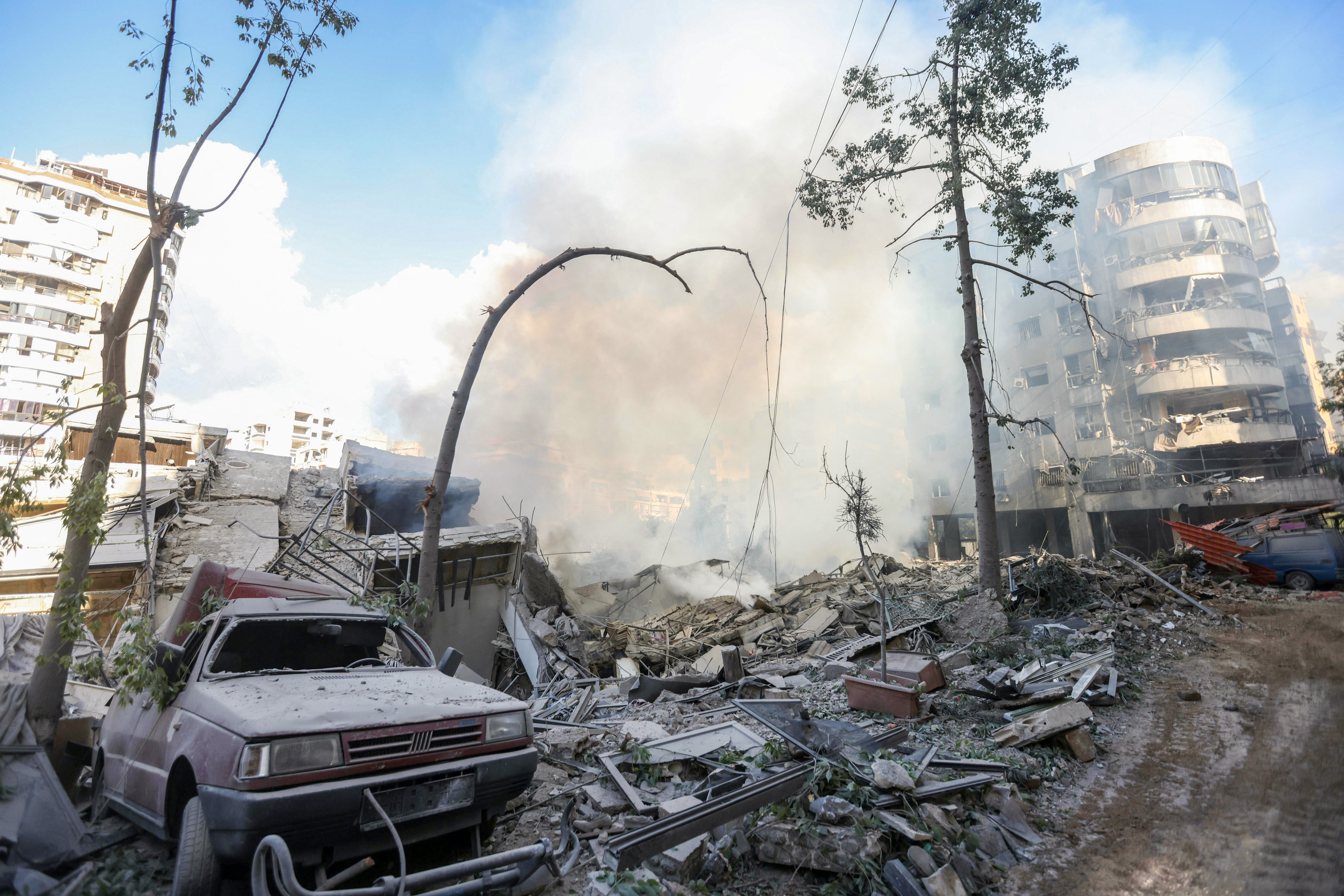Israel and Hezbollah clash in fierce fighting in Lebanon as Netanyahu vows Iran ‘will pay’ for missile attack
‘Significant’ response expected in days after eight Israeli soldiers killed as fighting intensifies on the ground in Lebanon
Your support helps us to tell the story
From reproductive rights to climate change to Big Tech, The Independent is on the ground when the story is developing. Whether it's investigating the financials of Elon Musk's pro-Trump PAC or producing our latest documentary, 'The A Word', which shines a light on the American women fighting for reproductive rights, we know how important it is to parse out the facts from the messaging.
At such a critical moment in US history, we need reporters on the ground. Your donation allows us to keep sending journalists to speak to both sides of the story.
The Independent is trusted by Americans across the entire political spectrum. And unlike many other quality news outlets, we choose not to lock Americans out of our reporting and analysis with paywalls. We believe quality journalism should be available to everyone, paid for by those who can afford it.
Your support makes all the difference.Israel and Hezbollah have clashed in intense ground battles in southern Lebanon for the first time in nearly two decades as Israeli prime minister Benjamin Netanyahu vowed Iran “will pay” for its huge missile attack.
Mr Netanyahu held two security meetings in the immediate wake of Iran firing 180 ballistic missiles at Israel, the first of which was in a bunker in Jerusalem late on Tuesday night and the second was at the defence ministry’s Tel Aviv headquarters on Wednesday, to work out a response.
“Iran made a big mistake tonight – and it will pay for it,” he said, immediately after the attack. “The regime in Iran does not understand our determination to defend ourselves and our determination to retaliate against our enemies.”
On Wednesday afternoon, Israel’s army chief said Israel would definitely strike back.
“We will respond. We can locate important targets and we can hit them precisely and powerfully,” said the chief of the General Staff Herzi Halevi, in a video from an air force base in central Israel. “We have the capability to reach and strike every location in the Middle East and those of our enemies who have not yet understood this will understand this soon.”
Speaking to Axios and NBC News on Wednesday, Israeli officials vowed they were readying a swift and “significant retaliation” within days, possibly targeting Iranian oil facilities.
The US said it would help Israel ensure that Iran suffers “severe consequences” for its attack, one that Israel revealed caused minor damage to military facilities. On Wednesday, US president Joe Biden said that he does not support an attack on Iran's nuclear sites as part of any Israeli response.
Mr Biden also told reporters that there would be more sanctions imposed on Iran.
Iranian president Masoud Pezeshkian said his country “does not seek war” but warned: “If Israel acts against us we will respond.”
International efforts to put a stop to the conflict nevertheless went into overdrive as Antonio Guterres, United Nations secretary general, warned that “the raging fires in the Middle East are fast becoming an inferno”.
Just hours earlier, Israel’s foreign minister Israel Katz announced that he had barred Mr Guterres from entering the country, alleging that the secretary general had failed to unequivocally condemn the Iranian attack.
During a meeting with the UN Security Council late on Wednesday, Mr Guterres did condemn the attack but urged both Israel and Hezbollah to cease their “deadly cycle of tit-for-tat violence” in southern Lebanon. Leaders from the Group of Seven in a meeting attended by Mr Biden also reiterated their condemnation of Iran’s attack.

Sir Keir Starmer, in a separate meeting with European Commission president Ursula von der Leyen, criticised the attack before calling for all parties to the conflict to urgently “pull back from the brink” of major escalation.
The first charter flight carrying British citizens out of Lebanon landed in Birmingham on Wednesday evening, with foreign secretary David Lammy saying earlier that more have been arranged for this week.
As fighting raged on in southern Lebanon, Israel announced that eight soldiers had been killed in combat in the first waves of ground battles since Israel invaded Lebanon in a month-long all-out war with Hezbollah in 2006.
Late on Wednesday night, Israel launched an airstrike on Beirut with Lebanon’s health ministry saying two had been killed and 11 injured. Local officials had said Israel’s strikes have killed more than 1,000 people and displaced one million – about a fifth of the population – from their homes.
Hezbollah media chief Mohammad Afif said the fighting was only “the first round” as he claimed that the group had enough fighters, weapons and ammunition to push Israel back over the border. The group later reported it had destroyed at least three Israeli tanks in the border town of Maroun El-Ras.
The group added that it had fired dozens of rockets at military posts inside Israel, while footage showed areas of Beirut and southern Lebanon devastated yet again by a series of Israeli airstrikes. The number of those killed in Lebanon over the last nearly three weeks of Israeli strikes is quickly nearing 2,000, according to the Lebanese health ministry.
In a briefing organised by the American Task Force for Lebanon, a US-based lobby group, Lebanese caretaker prime minister Najib Mikati pleaded with the international community to help broker a ceasefire and accused Israel of “looking for war”.
“Anyone who cares about Lebanon, I say we have to have our ceasefire. We don’t need more blood. We don’t need more destruction,” he said.
“Why is Israel not accepting a ceasefire today? They are looking for war, we are looking for a diplomatic solution. They are choosing the lose-lose option.”

The Israeli military maintains its invasion of Lebanon is confined to Hezbollah’s military positions in the south, the area of the country controlled by the Iran-backed group.
But on Wednesday, it announced that regular infantry and armoured units were joining its ground operations in Lebanon, suggesting that the operation may move beyond limited commando raids.
The added troops were recruited from the 188th Armoured Brigade and 6th Infantry Brigade, as well as the 36th Division, which has also been fighting Hezbollah allies Hamas in the Gaza Strip.
The military said a 22-year-old Israeli team commander was the first to be killed in the fighting in Lebanon. A Lebanese soldier, separate from Hezbollah, was also injured in an Israeli drone strike on southern Lebanon, the Lebanese army said in a statement.
Israel also issued new evacuation orders for around two dozen towns along the southern border, instructing inhabitants to head north of the Awali River, which flows east to west some 60km (37 miles) north of the Israeli border.

The Israeli military has sent evacuation orders to 51 Lebanese villages in total, amounting to a quarter of all Lebanese territory, with its inhabitants pushed more than 30 miles north of their homes.
More than 60,000 Israeli residents from the northern territories have already been displaced from their homes, with Hezbollah and Israel exchanging almost daily fires across the border since 8 October, the day after Hamas launched a terror attack on Israeli soil.
That attack killed around 1,200 Israelis and led to 251 more being taken hostage in Gaza. Nearly half of those hostages remain in the enclave.
The health ministry in Gaza says more than 41,600 Palestinians have been killed in the retaliatory Israeli air and ground offensive in the enclave.
Hezbollah says it will not stop attacking Israel until it ceases its offensive on Gaza. Hezbollah and Hamas are both backed by Iran and oppose the state of Israel.
Hopes of a ceasefire brokered by the US, Qatar and Egypt between Israel and Hamas were dashed after months of negotiations as neither side was willing to accept concessions.
Israeli military strikes across the Gaza Strip killed at least 65 Palestinians in the latest attacks on Wednesday, including on a school sheltering displaced families, medics said. Israeli tanks were also seen advancing in areas of Khan Younis in the south of the enclave.

Join our commenting forum
Join thought-provoking conversations, follow other Independent readers and see their replies
Comments